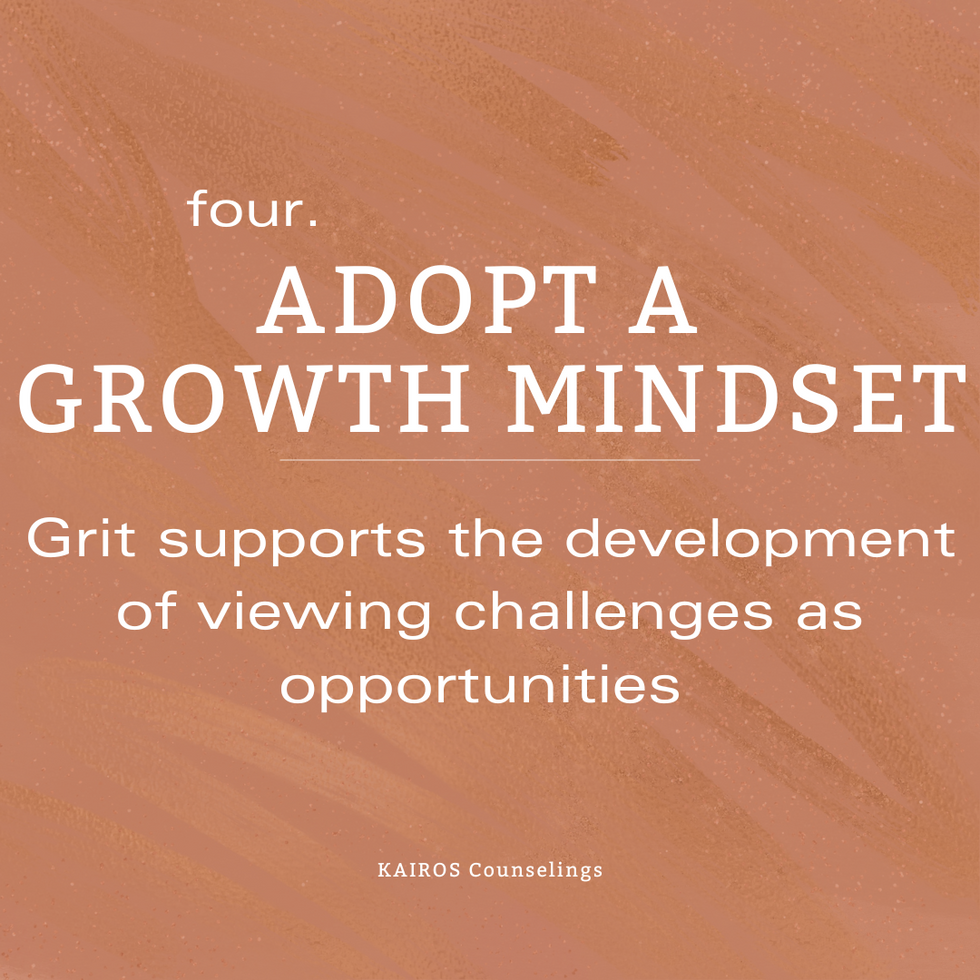
It's easy to get discouraged when challenges arise. Whether you're pursuing personal goals or navigating mental health challenges, maintaining momentum is key. That's where grit comes in.
According to Angela Duckworth, a prominent researcher on the subject, grit is the combination of passion and perseverance in the pursuit of long-term goals. It’s not just about talent or intelligence—it’s about sticking with your goals, even when the going gets tough.

In fact, Duckworth's research shows that grit may be more important than talent in determining success. Whether you're learning a new skill or working through personal challenges, grit can help you move forward, even in the face of setbacks. (American Psychological Association) (Psychological Science)
What is Grit and How Can You Cultivate It?
At its core, grit is about showing resilience and determination over time.
Here are some strategies to access and nurture your grit:

Define Clear Goals
Start with a vision for where you want to go. Set specific, realistic, and challenging goals that align with your values.
Develop Passion
Engage in something you genuinely care about. When you find passion in your pursuits, staying committed through challenges becomes easier.
Cultivate Resilience
Understand that setbacks are part of the process. Learn from them, adapt, and continue pushing forward. Resilience is key to growth.
Practice Consistency
Grit is about long-term dedication. Break your larger goals into manageable steps, and take action consistently.
Maintain a Growth Mindset
Believe in your ability to grow and improve. When challenges arise, see them as opportunities to learn rather than obstacles to avoid. (American Psychological Association)
Grit and Mental Health Recovery
Grit is not only beneficial in professional or educational settings; it’s also a powerful tool in mental health recovery. Here’s how grit can help individuals on their mental health journey:
Build Resilience
Recovery from mental health challenges often involves setbacks. Cultivating grit helps build the resilience needed to bounce back from these challenges.
Persevere in Treatment
Mental health treatment can take time. Grit involves sticking with treatment plans—whether that’s therapy, medication, or lifestyle changes—even when progress feels slow.
Set Realistic Goals
Grit encourages you to set manageable goals, such as improving sleep habits or practicing mindfulness daily. These small steps add up to significant progress over time.
Adopt a Growth Mindset
Viewing challenges as opportunities to learn is essential in mental health recovery. Grit supports the development of this mindset, empowering individuals to work through difficulties with confidence. (Psychological Science)
Embrace Grit for Long-Term Success
Ultimately, cultivating grit allows you to persist in the face of difficulties, making progress in both personal and mental health goals. Grit empowers individuals to view challenges as opportunities, leading to greater resilience and long-term fulfillment.
If you're facing a mental health challenge or working toward a personal goal, remember,
Grit isn't about talent or luck.
It's about effort, perseverance, and the unwavering belief that you can improve, no matter what obstacles come your way. If you would like professional help to cultivate grit, complete our client inquiry form.












Comments